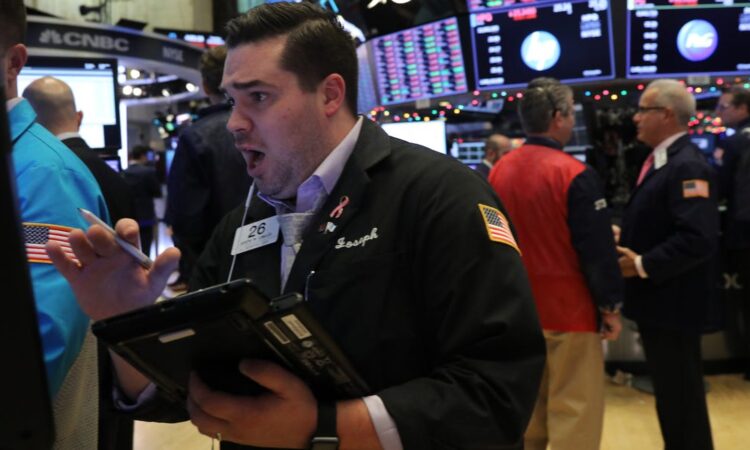
If you’re investing in foreign currencies and feeling good, a top strategist for Morgan Stanley says you might be missing a potentially damaging trend bubbling under the market’s surface.
Hans Redeker, the head of global foreign-exchange strategy for Morgan Stanley Investment Management, says investors have started acting as if market liquidity is on the upswing when it’s actually shrinking. And he warns that’s not sustainable.
“Markets seem to be trading on an illusion of ample liquidity, with volatility at almost historic lows, gold prices rushing higher despite the US dollar remaining within a tight trading range and equities breaking higher as the bond market treads water,” he wrote in a recent note to clients.
The problem is that liquidity isn’t growing. Savings in Europe and Japan are down, while the Federal Reserve’s balance sheet is shrinking, Redeker says. And of the 10 largest central banks, only Japan’s is still buying assets and simulating the economy.
Relative to gross-domestic-product growth, Redeker finds that the balance sheets of those banks are falling at the fastest pace since 2008, around the time of the Great Recession.
“Market liquidity has not been supported by rising assets or increasing global net savings,” Redeker said.
His view is that recent shifts by banks have encouraged investors to spend more cash, but several other factors are pushing liquidity lower. In his mind, that can’t last, and neither, he said, can a rally based on that “illusion.”
He continued: “These shifts can only be of temporary nature and are unlikely to promote a longer-term risk bull trend.”
Redeker noted that investors were pleased when inflation forecasts started falling last year, but they’re already on the rise as oil prices increase. At the same time, projections for corporate earnings growth are falling, with rising wages and other input costs a contributing factor.
Redeker, whose firm has $471 billion in assets under management, made a series of recommendations designed to minimize risks for investors who could get hurt by the backlash. His suggested positions include:



